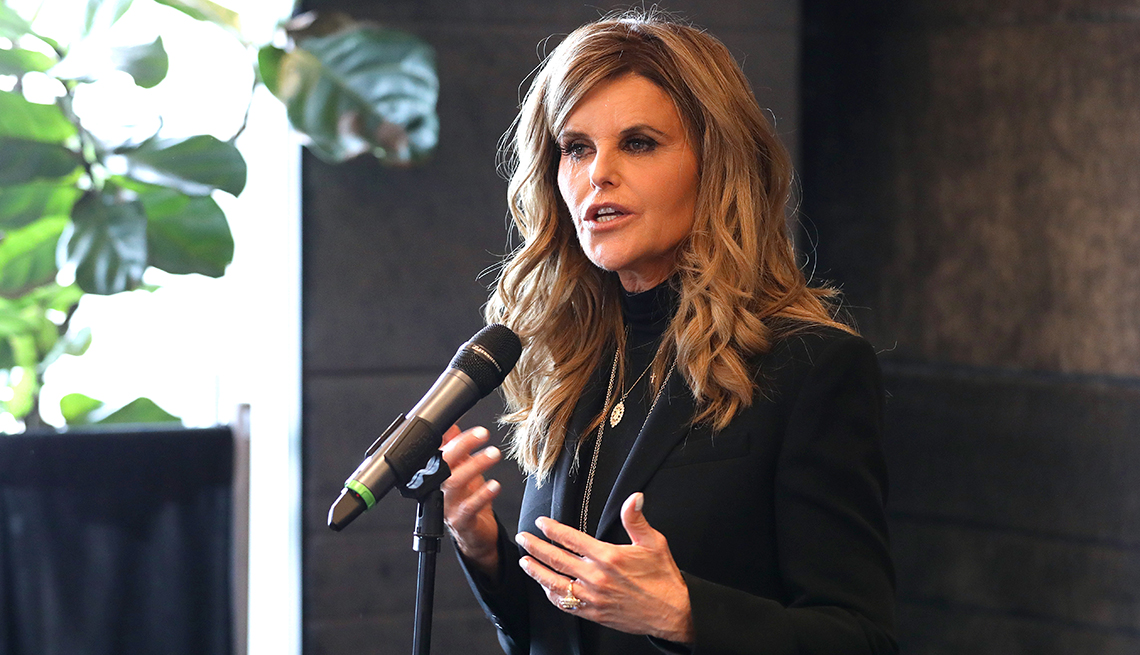
Maria shriver on alzheimer's and being a family caregiver
- Select a language for the TTS:
- UK English Female
- UK English Male
- US English Female
- US English Male
- Australian Female
- Australian Male
- Language selected: (auto detect) - EN
Play all audios:
L.W.: OFTEN AFTER THE LOSS OF SOMEONE — OR IN YOUR CASE, BOTH PARENTS — LIFE IS DISORIENTING. WHAT ADVICE CAN YOU GIVE US FROM YOUR OWN EXPERIENCE ABOUT THE AFTERMATH OF CAREGIVING? M.S.: At
first I felt guilty at having so much time back. I hadn't realized how much of my days were involved with conversations with doctors and health care professionals. While caregiving
[for] my parents and raising my kids, I often felt a constant sense of dislocation, like I was never in the right place. When I was with my parents, I missed my kids. When I was home with my
kids, I worried about my parents back east. Everywhere I went, I felt like I was in the wrong place. It was a feeling of being between lives, and I had to adjust again when that stopped.
L.W.: YOU HAVE HONED YOUR VOICE AS A JOURNALIST, AUTHOR, FIRST LADY OF CALIFORNIA, ADVOCATE FOR THE FIGHT AGAINST ALZHEIMER'S AND SO MUCH MORE. WHAT ARE YOU MOST PROUD OF IN ALL THIS
WORK? M.S.: I'm most proud of helping to change the narrative around women and Alzheimer's, to put us squarely in the story. Changing that trajectory means that more research is
being done about women's brains and how they age. I hope, at some point, I'll have a role in helping to find a cure. Maria Shriver (right) with parents Eunice Kennedy Shriver and
Sargent Shriver in 2001. Ron Galella/Getty Images L.W.: WHAT IS THE BEST CAREGIVING ADVICE YOU EVER RECEIVED? M.S.: When I was in the waiting room and my mother was in the ICU, a nurse came
up and asked if I needed anything. There was someone whose mother was dying, and someone else had been in a car accident. I told the nurse to focus on them, and she said to me, “There is no
competition when it comes to grief.” I grew up in a family where people negated feelings, and even though Mom was dying, I didn't feel like I deserved someone to come care for me or ask
how I felt. It's important to remember, as the caregiver, that your pain matters, too. Don't negate your own feelings. If you are feeling something, then it's true, and you
need to honor that. Remind yourself that you are doing the best you can — and that's all you can do. L.W.: YOU ARE IN A POSITION TO BE ABLE TO AFFORD TOP-NOTCH HEALTH CARE, AND YOUR
FAMILY HAS ALWAYS FOUGHT FOR THOSE WHO DON'T HAVE AS MUCH. WHAT CAN YOU SHARE ABOUT RESOURCES FOR FAMILIES IN NEED OF BETTER ACCESS TO HEALTH CARE? M.S.: I am very proud to be chairing
the governor's health care task force for the state of California, to help put a plan in place for the state, which I hope can be adapted for the entire country. We are working in depth
to chart a path for people with limited resources — to simplify streamlined services and help them move forward as they navigate the system and as they age.